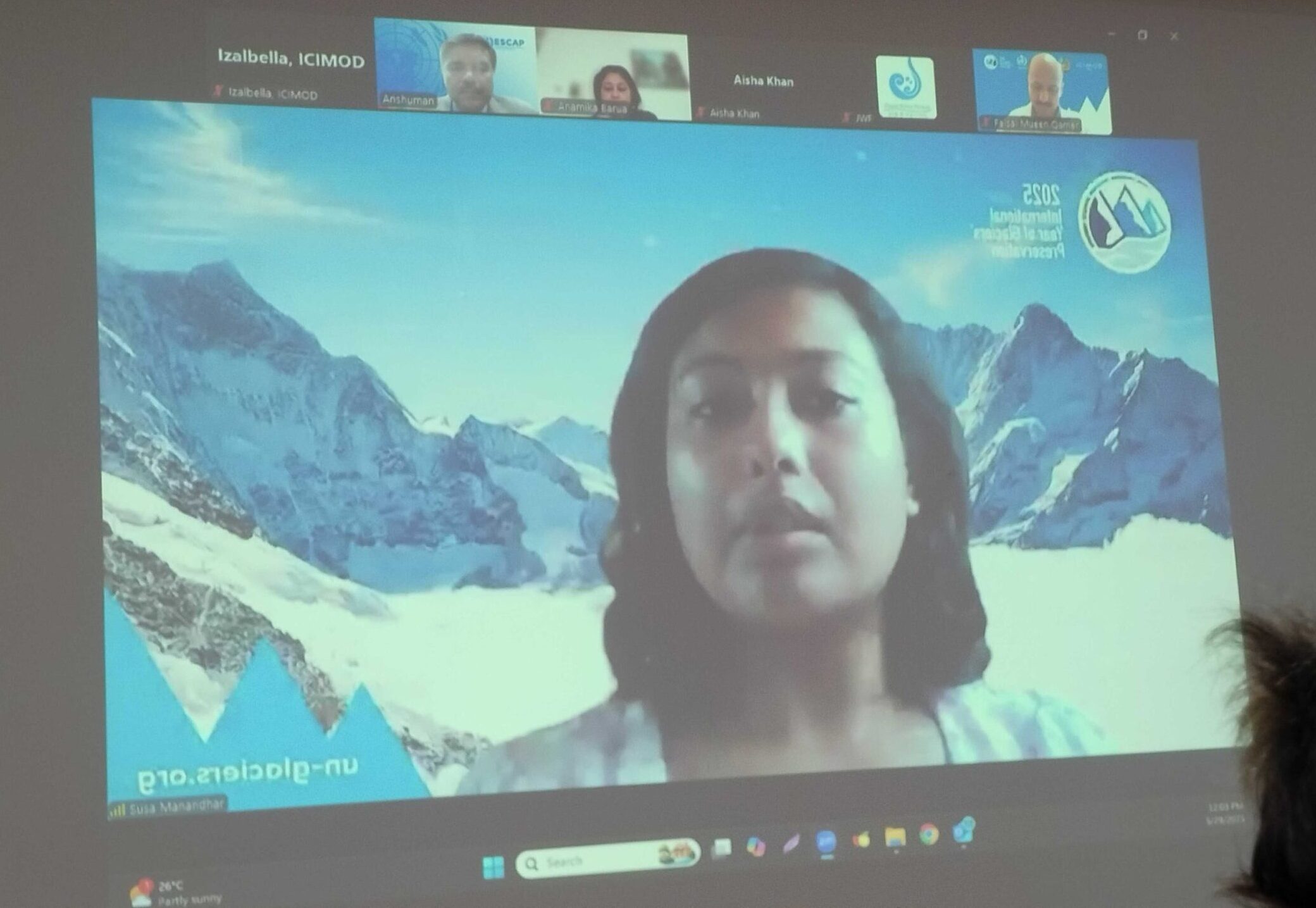Hon. Mr. Ghimire inaugurated the opening of NNWW 2013 by watering a plant. The major highlights in his opening remarks were on the three main topics: Integrated Management Approach, Water Resources Conservation and Water Use. He said that the challenge for integrated management of water is the lack of implementation of the policies and action plan made so far due to political issues. He said, “We should concentrate more on conservation of water resources as there are 80% of our interventions on water use”. He stressed on the need of prioritizing the water use as the state is heading towards the Federal states. There is increase in water consumption but less use in agriculture should see the human position on the ecological hierarchy. “It is like a chicken and hen issue, Human for Nature or Nature for Human.” said Hon. Ghimire. Rural area water management is much easier than that in urban areas. Urban area needs high expenses whereas, rural areas need the balance in the different interventions of water and its multiple use. “How to increase the multiple uses? And technology is another dimension” said Hon. Ghimire the Urban areas should be more concerned about water availability and focus on waste water use. Last but not the least, the Chief Guest, Dr. Ghimire stated, “The Water is the economy of the country. We should end treaty concept and go for economic development concept. This is only the starting, as government cannot do it alone, NNWW needs to make a systematic framework to enhance its value.” He further committed that government will surely consider the outcome of the discussions and activities during NNWW 2013.
Following the inauguration, Dr. David James Molden, Director General of ICIMOD, delivered the keynote speech. He highlighted on importance of mountains and the role of mountain people specially women and farmers for water resource management in upstream.
On his remark, Dr. Shirish Singh, Program Head, Urban WASH, Practical Action urged to focus on the indoor air pollution, hygiene behavior and water resources management.
Dr. Luna Bharati, office head at the Integrated Water management Institute (IWMI), in her remarks highlighted on the history of water treaties and water wars.
Mr. Ashutosh Tiwari, Country Representative at Water Aid, said that there is no lack of water but, lack of strong governance in Nepal. He further added, “When talking about Groundwater, who is going to manage it?”
Dr. Ghan Shyam Gurung, Conservation Program Director at WWF Nepal, highlighted on the importance of water security, as it plays a vital role for the security of biodiversity, food and energy.
Mr. Andreas Knapp, Chief of WASH section, UNICEF Nepal, told that he was inspired by the former speakers and added that Nepal can prosper a lot if the multi stakeholders work under one governance with common objectives.
Mr. Sudarshan Rajbhandari, Vice president of The Small Earth Nepal and Secretary of NNWW 2013, delivered his sincere appreciation and thanks to all the supporters, organizers, stakeholders and the audiences for making the program success.
The chairperson of the program, Mr. Bishwa Prakash Pandit, Secretary of WECS, gave the closing remarks. With the announcement of the closing of the program, he thanked the chief guest, guests, audience, journalists, supporters and the organizers and wished for the success of the upcoming events of NNWW 2013.



